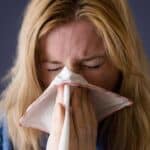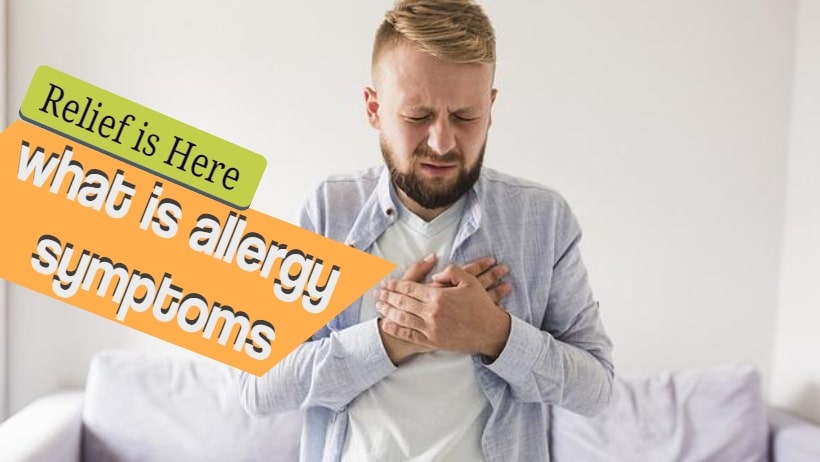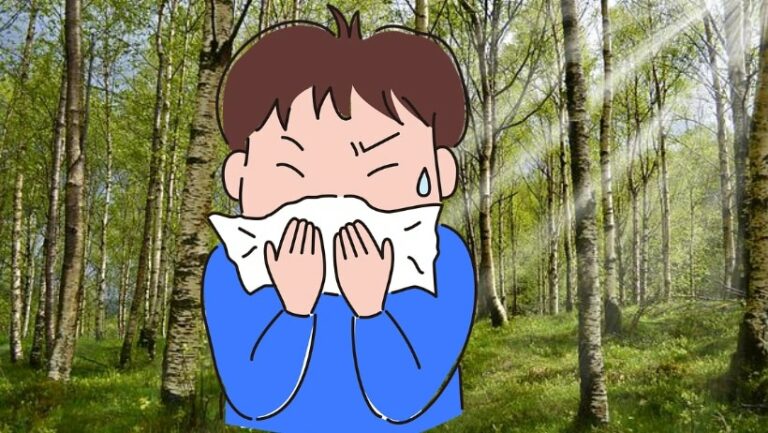We could not find any research indicating common seasonal allergy symptoms, exempting any cultural group or people. Therefore, we all can be affected by one of the following seasonal symptoms:
Table of Contents
Throat, ear canals, sneezing, watery and itchy eyes or even a runny or stuffy nose and itchy sinuses make up the family of allergies.
You might be asking whether there are any best home remedies for allergies.
We found saline nasal irrigation filters the air in your home and other indoor environments. Also, butterbur has been used way back in time to treat plague and fever. It is attributed to the traditional use of its large leaves to wrap butter in warm weather. In the 17th century, butterbur was used to treat asthma, cough and skin wounds.
Bromelain is also an enzyme found in papaya and pineapple; acupuncture, probiotics, honey, air conditioners, and dehumidifiers will fight against common symptoms of seasonal allergies.
Do you have allergies? If so, you’re not alone. Much research reveals that allergies are among the most common chronic conditions when surveyed in the United States, affecting more than 50 million people.
Canada
In 2016 there was an allergy survey in Canada. That survey included 5,874 households and represented 15,322 individuals, including new Canadians, individuals of Indigenous identity, and members of lower-income households showed that peanut, tree nut, shellfish, fish, milk, egg, wheat, sesame and soy are the main causes for allergy reactions.
In 2017 research on allergies revealed that 27.3% of Canadians aged 12 and older (roughly 8.4 million people) reported having allergies diagnosed due to allergy tests. Overall, females (28.9%) were more likely to report having allergies than males (25.6%).
While allergies can cause various symptoms, some are more common than others. Here are eight symptoms of allergies that you should never ignore:
Common Allergies
1. Itchy eyes
If you are experiencing itchy eyes, it could be a sign of allergies. Your allergies can cause the eyes to become red, watery, and itchy. If you sneeze and have a runny nose, your itchy eyes are likely due to allergies.
2. Swelling
Swelling is another common symptom of allergies. Allergies can cause the face, lips, tongue, or throat to swell. If you have to swell with difficulty breathing, it’s a medical emergency, and you should call 911.
3. Hives
Hives are itchy, red, and raised bumps on the skin. They’re common symptoms of allergies and can be triggered by various things, including certain foods, medications, and insects. If you have hives, it’s important to figure out what’s causing them so you can avoid future exposures.
4. worsening asthma
Allergies can trigger asthma attacks and make it difficult to control your asthma. If you have asthma, allergies can make your symptoms worse. If you have asthma and your symptoms are worsening, seeing a doctor to rule out allergies is important.
5. difficulty breathing
Allergies can cause difficulty breathing and even lead to anaphylactic shock, a medical emergency. If you have difficulty breathing or your throat feels like it’s closing, you should call 911.
6. nausea and vomiting
Vomiting and nausea, in most cases, can be a sign of food allergies or a side effect of some medications. If you have nausea, vomiting, and other symptoms, such as difficulty breathing or swelling, you must visit your family doctor to rule out a life-threatening allergic reaction.
7. dizziness
Dizziness can be a symptom of allergies, especially if you also have swelling of the face or throat. If you have dizziness and other symptoms, such as difficulty breathing or chest pain, you must see a doctor to rule out a life-threatening allergic reaction.
8. fatigue
Fatigue is a common symptom of allergies and can be caused by various things, including antihistamines. If you’re taking an antihistamine for your allergies and feeling tired, it’s important to chat with your family doctor to determine if you should switch to a different medication.
Allergies can be a nuisance; according to medical advice, allergies can also be dangerous. Therefore, when your body is experiencing any of the following symptoms, you must see your family doctor to rule out allergies. If your allergies are severe, carrying an epinephrine auto-injector (such as an EpiPen) around in an emergency is important.
Most people think of allergies as itchy eyes and a runny nose. But allergies can also cause serious health problems, including anaphylaxis, a potentially life-threatening reaction.
The types of allergies we experience see today are different, and the symptoms can vary from person to person. But there are some common allergy symptoms that you should be aware of.
Signs And Symptoms of Seasonal Allergies
1. Sneezing
Sneezing is one of the most common allergy symptoms. It’s caused by the irritants in the air triggering the release of histamines in the body.
2. Itchy Eyes
Itchy eyes are another common symptom of allergies. They are caused by the same histamines that cause sneezing.
3. Runny Nose
A runny nose is normally a symptom of another common allergy. It is caused by the mucus membranes in the nose becoming inflamed and producing excess mucus.
4. Congestion
Congestion is another common symptom of allergies. The inflammation of the blood vessels in the nose and throat causes it.
5. Coughing
Coughing is another common symptom of allergies. The irritation of the throat and airways causes it.
6. Wheezing
Wheezing is another common symptom of allergies. The narrowing of the airways causes it.
7. Shortness of Breath
If you are having a form of shortness of breath is another common symptom of allergies. The inflammation of the lungs causes it.
8. dizziness
Dizziness is another common symptom of allergies. A drop in blood pressure causes it. Having an allergic reaction means your body releases histamines. These substances are designed to protect your body from foreign invaders but will also cause uncomfortable symptoms. Allergies can affect your nose, lungs, skin, and nervous system.
The most common symptoms include:
1. Itchy nose, mouth, or throat
2. Runny nose
3. Sneezing
4. Watery eyes
5. Dark circles under your eyes (allergic shiners)
6. Swelling of your eyelids
7. Wheezing
8. Dizziness
- Other allergy concerns that are often spoken about are:
- Skin allergy symptoms
- Five stages of an allergic reaction
- Causes of allergy
- Allergic reaction symptoms
- Year-round allergies
- Stuffy nose
- Treat seasonal allergies
- Are seasonal allergies common
- Allergies in children
Safe Fix Fighting Symptoms of Seasonal Allergies
How do you know if you have seasonal allergies?

From all our research, Sneezing, Runny or stuffy nose, watery and itchy eyes, Itchy sinuses, throat, or ear canals are the signs to watch out for.
What happens to your body with seasonal allergies?

Your resistant system moves into overdrive during a seasonal allergic response, causing a complex mix of cellular and chemical interchanges within your body. The most typical outcome is watery eyes, sneezing, congestion, and other allergy symptoms like itchy.
How do you know if it’s allergies or a cold?

If you have a cold, a virus is usually the cause of that affection, whereas an allergy is your immune system’s reaction to a substance like pet dander or Pollen. The two conditions will normally cause similar symptoms, like stuffiness and sniffles. Some people will get them mixed up. Therefore, knowing which can help us get the right treatment will help us feel better faster.
Can Seasonal Allergies Make You Feel Weird?
One allergy that we have not given much attention to is Pollen which is also considered one of the most common triggers of many people’s seasonal allergies. Pollen allergy is “hay fever,” and some health experts normally refer to the symptom of pollen allergy as “seasonal allergic rhinitis.”
While seasonal allergies are common, we should not mistake seasonal symptoms for common colds.
Up to 30% of the population is estimated to suffer from seasonal allergies, also known as hay fever. Symptoms can include sneezing, a runny or stuffy nose, itchy and watery eyes, and fatigue that might not be related to any other seasonal allergy symptoms or issues. It is easy to mistake these symptoms for the common cold, but some key ways exist to tell the difference.
As we discovered earlier, an immune system overreaction causes seasonal allergies to environmental triggers, such as Pollen from trees, grass, or weeds. The immune system views the Pollen as a foreign invader and releases histamines to fight it. We can accept this is a cause that leads to the symptoms of seasonal allergies. On the other hand, the common cold is caused by a virus, such as rhinovirus.
Histamines also cause cold symptoms, but the virus triggers the release in this case. One of the key ways to tell the difference between the two is the timeline of symptoms. With seasonal allergies, symptoms tend to come on gradually and worsen as exposure to the trigger increases. With a cold, symptoms appear suddenly and peak off in a couple of days. Another way to tell the difference is by looking at other symptoms.
Seasonal allergies will typically not cause a fever, whereas a cold will. Seasonal allergies can also cause itchiness and swelling in the eyes and throat, whereas a cold is more likely to cause a sore throat. It is best to see a doctor if you are unsure whether seasonal allergies or a cold causes your symptoms. They can perform a physical examination and order tests, such as a blood or skin prick test, to confirm the diagnosis.
Seasonal allergy symptoms and fatigue are common symptoms many people experience and wonder what is happening.
It is also important to rule out other causes of your symptoms, such as a sinus infection similar to seasonal allergies. Your doctor will ask about your symptoms and when they occur. They will also ask if you have any pets, as allergies to pet dander are common. If you have seasonal allergies, you may also have other allergies, such as dust or Pollen.
Your doctor will ask about your family history of allergies and whether you have any other medical conditions. Your doctor will examine your nose and eyes. They may also test your skin for reactions to common allergens, such as Pollen, dust, or pet dander.
The doctor may also do blood tests to measure your level of antibodies, which can help identify what you are allergic to. If you have seasonal allergies, avoiding what you are allergic to is the best way to prevent symptoms. However, this is not always possible. There are also over-the-counter and prescription medications that can help relieve your symptoms.
Recap/Conclusion
As the season changes, so do the allergens in the air. For some people, this can trigger symptoms commonly called seasonal allergies. These symptoms can be mild or severe and can affect people differently. In this article, we will explore the symptoms of seasonal allergies, what causes them, and how to treat them effectively.
Symptoms of Seasonal Allergies:
1. Sneezing: Sneezing is the most common symptom of seasonal allergies. It is caused by the body’s immune response to allergens in the air.
2. Runny or stuffy nose: A runny or stuffy nose is another common symptom of seasonal allergies. The inflammation of the nasal passages causes this.
3. Itchy and watery eyes: Allergens in the air can cause the eyes to become itchy and watery. This is because the immune system reacts to the allergens by releasing histamines in the body.
4. Coughing: Coughing is another common symptom of seasonal allergies. It is the body’s way of trying to clear the airways of allergens.
5. Fatigue: Allergic reactions can cause fatigue and a general feeling of being unwell. This is because the body uses energy to fight off allergens.
Causes:
Allergens in the air cause seasonal allergies. These can include Pollen from trees, grasses, and weeds. Mould spores and dust mites can also be a problem for some people.
Treatment:
The best way to treat seasonal allergies is to avoid exposure to allergens. This may mean staying indoors during times when allergens are at their peak. Over-the-counter antihistamines can also be effective at relieving symptoms. Prescription medications may be necessary for severe cases.
In conclusion, symptoms of seasonal allergies can be mild or severe and affect people differently. Understanding the symptoms, causes, and treatments allows you to effectively manage your seasonal allergies and enjoy the changing seasons without feeling miserable. If you are experiencing symptoms of seasonal allergies, be sure to speak with your doctor for a proper diagnosis and treatment plan.




















